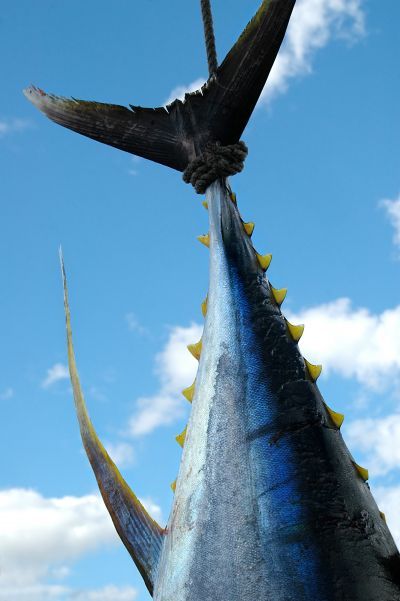Bluefin tuna on edge of extinction, environmentalists warn

Your support helps us to tell the story
From reproductive rights to climate change to Big Tech, The Independent is on the ground when the story is developing. Whether it's investigating the financials of Elon Musk's pro-Trump PAC or producing our latest documentary, 'The A Word', which shines a light on the American women fighting for reproductive rights, we know how important it is to parse out the facts from the messaging.
At such a critical moment in US history, we need reporters on the ground. Your donation allows us to keep sending journalists to speak to both sides of the story.
The Independent is trusted by Americans across the entire political spectrum. And unlike many other quality news outlets, we choose not to lock Americans out of our reporting and analysis with paywalls. We believe quality journalism should be available to everyone, paid for by those who can afford it.
Your support makes all the difference.An international fisheries group set up to protect Atlantic tuna has done the opposite and driven one species of the fish, the bluefin, to the edge of extinction, environmentalists said Thursday.
On the eve of a meeting in Brazil of the International Commission for the Conservation of Atlantic Tunas (ICATT), environmentalists accused the group of ignoring the advice of its own scientists and setting fishing quotas for bluefin tuna that have drastically depleted stocks.
"ICATT has continually disregarded countless opportunities to do the right thing and secure the Atlantic bluefin tuna and guarantee the recovery of this species," Susan Lieberman, director of international policy at the Washington-based Pew Environment Group, told reporters.
Marine biologist Carl Safina, president of the Blue Ocean Institute, which studies how human behavior impacts the ocean, called ICATT "the poster child for not only failure which is demonstrable but cynicism and a real unwillingness to get serious, be professional and listen to what the science has to say.
"The world's first fisheries management agency formed out of concern for this one species, never followed their own science, never lived up to their mandate to manage for a sustainable yield," Safina said.
According to Lieberman, ICATT has for decades set quotas above what its own scientists have recommended for bluefin tuna.
Governments systematically exceed the ICATT-set quotas and allow their industrial fleets to over-fish the species.
Combined with illegal fishing, this has caused the population to decline by more than 85 percent in the eastern Atlantic and by more than 90 percent in the western Atlantic, she said.
"The blue fin tuna will not be with us and certainly will be extinct if governments don't do the right thing... and unless ICCAT says, 'Enough is enough, it's time for a zero quota; we're going to put the brakes on this fishery," Lieberman said.
A first "right thing" to do by bluefin tuna would be to include it on the Convention on International Trade in Endangered Species (CITES) list of animals and plants most threatened with extinction, the environmentalists said.
ICATT scientists met twice last month in Spain to discuss including the bluefin tuna on the CITES list, known as Appendix One. The fisheries management group, which was set up in the late 1960s, is due to begin a 10-day meeting in Recife, Brazil on Friday.
ICATT was set up to conserve "tuna and tuna-like species in the Atlantic Ocean and adjacent seas," according to its website.
Forty-eight countries in every region of the world -- ranging from Algeria, Barbados, China and France, to Ivory Coast, Japan, the United States and Venezuela -- are contracting parties to ICATT.
Join our commenting forum
Join thought-provoking conversations, follow other Independent readers and see their replies
Comments